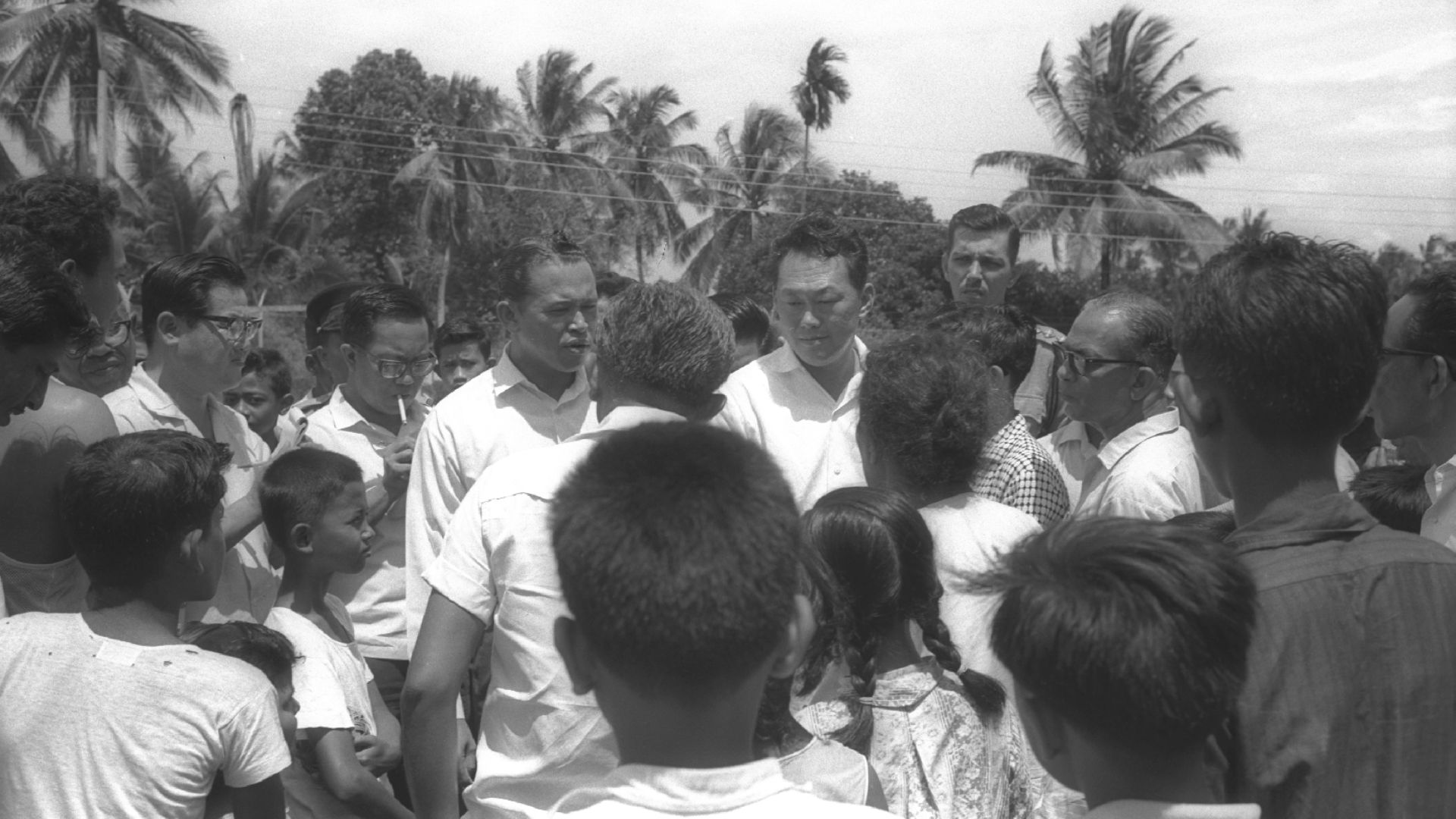When it comes to its style of government, Singapore has one that is “a mix of semi-authoritarian, one-party rule”. Its civil service is highly centralised and meritocratic, with government officials appointed to their jobs based on skill and performance.
Singapore’s success clearly did not come down to the late Mr Lee Kuan Yew alone and he acknowledged this. “I was fortunate to have had a strong team of ministers who shared a common vision. They were able men determined to pursue our shared goals,” he said.
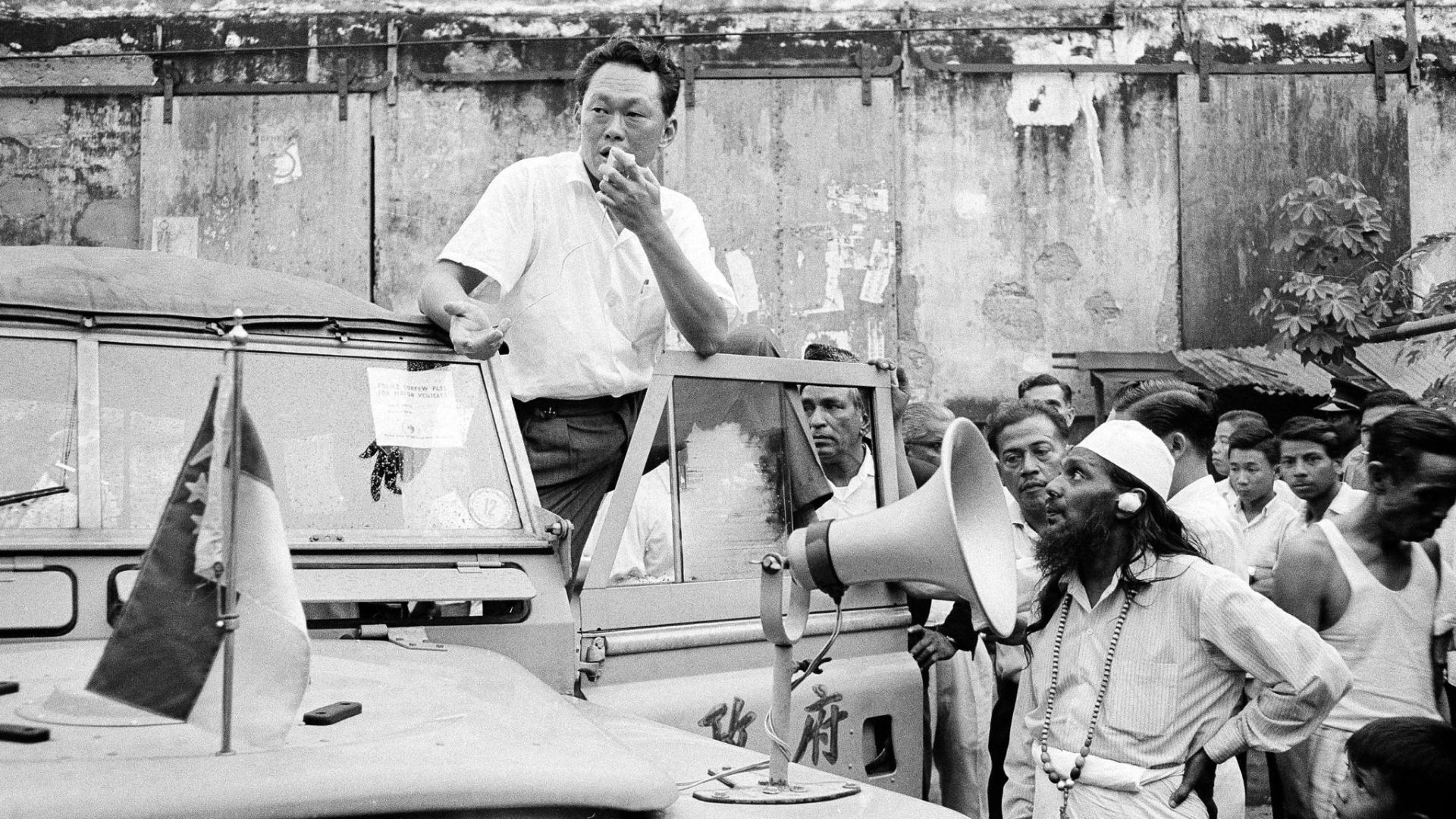
Fear and uncertainty
For a young Singapore in the 1960s, a patriarchal mindset and government was needed. The island republic had been expelled from Malaysia in 1965, and was facing an uncertain future. Bereft of natural resources other than the strength and industriousness of its people, many in the international community feared that Singapore might fall into the hands of the communists, as with many new nations in Asia then had during tumultuous periods.
Instead, Mr Lee’s exceptional leadership acumen in putting together the right team to work to steadily establish a thriving economy that became one of Asia’s Four Tigers. The other three were Taiwan, South Korea and Hong Kong.
Benevolent and authoritarian
Mr Lee and his cabinet governed Singapore with a patriarchal system, also widely known as “benevolent autocratic” — a top-down approach where the Government laid down the law and set the direction for the economy, educational system, foreign relations and national life.
But Mr Lee did not strictly follow any political models or theories. Instead, he was pragmatic in his approach and tried to find new ways, some of which turned out to be very unconventional, to advance his country.
His highly controversial approach to handling some social and political issues, including the clearly authoritarian nature of his leadership and his party’s long-term domination in Singapore’s politics warranted to be researched and probed, as stated by analysts Alexander Mechitov, Helen Moshkovich and Michael Grainger in their 2021 Paper Lee Kuan Yew’s Lessons from Developing Singapore.
Mr Lee advocated strong political leadership and was an example of a leader who had the right national goals and found effective ways to reach them. He combined strong leadership with suppression and elimination of political opposition, as well as limiting press freedom and public expression, almost to the extent of being considered as micromanaging the country.
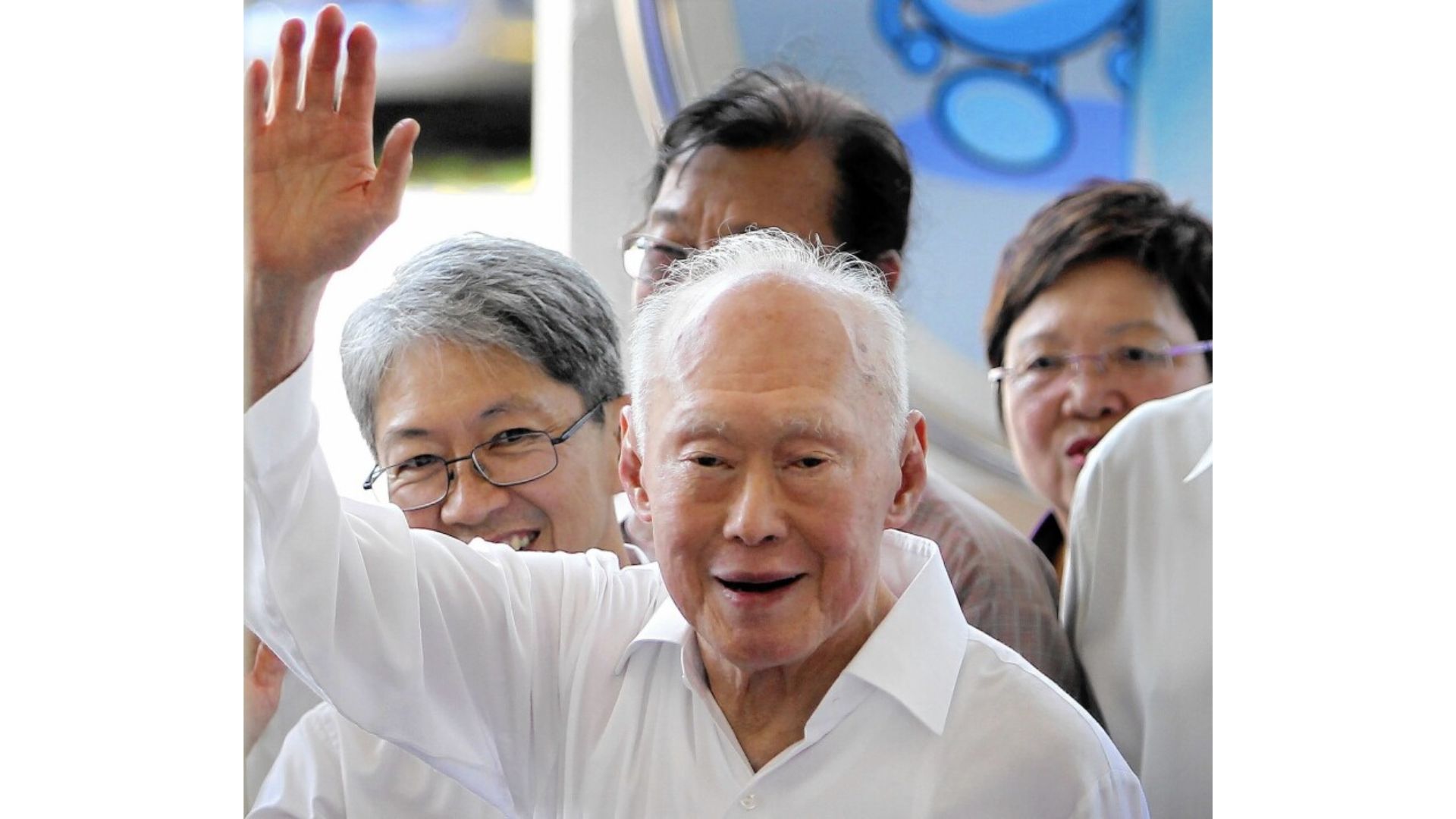
“The top must set an example”, he often liked to repeat. “My experience of developments in Asia has led me to conclude that we need good men to have good government. However good the system of government, bad leaders will bring harm to their people. On the other hand, I have seen several societies well-governed despite poor systems of government, because good, strong leaders were in charge.”
Law Professor Eugene Tan from the Singapore Management University’s (SMU) says such patriarchal style of government “was needed when we were building a nation, and because trust and confidence in the government was high and people had more basic needs then”.
Agreeing, Deputy Director (Research) at the Institute of Policy Studies (IPS) of the Lee Kuan Yew School of Public Policy Gilian Koh, says: ‘’In fact, if you read about Lee’s ‘lieutenants’ from various sources, you will know that it was a team effort in Cabinet and at the leadership levels in the public service.’’
Capable and incorruptible
Recognising that a high level of professionalism was necessary for the success of his government, Mr Lee emphasised the role of high-quality state bureaucracy and ensured this by nurturing and hiring the brightest. He thought that he would manage to successfully implement his many unpopular and restrictive policies only when his fellow citizens trust their leadership and believed that it would only become possible with high-quality state institutions.
The first goal was “to shape the government into an effective instrument of policy”, and this needed strong, fair, and just leaders, who have the moral strength to command the respect of the people. Unity in the core group of leaders would help “to send clear signals to the people thus avoiding confusion that would have arisen if the team had bickered and split”.
The patriarchal mindset has operated most clearly in compulsory military service for the men and population management through childbirth policies. This way of thinking offers important clues to understanding the political developments that have accompanied Singapore’s transition from old economy to new, primarily the shift towards a politics of openness, consultation, and participation, to engage the wider talents and resources of a consensus-seeking “people sector” focused on community care.
Mr Lee also advocated high compensations for civil servants with an uncompromising fight against corruption, considering it as one of the most important preconditions of effective government. This approach has worked well and has helped effectively eliminate corruption in Singapore and made this country one of the least corrupted in the world (ranked the 4th in the world in 2019) and the least corrupt country in Asia.
Mr S Dhanabalan, a PAP MP from 1976 to 1996 and who held various ministerial portfolios, told The Straits Times: ‘’His (Mr Lee’s) greatest strength as a leader was his foresight – his ability to see what is likely to happen, and to persuade people with arguments. Not just words, but the way he put his words across, the way he was able to transmit his conviction to people.’’
Measured coercion or Government knows best
The Lee Kuan Yew style of governing has its detractors. In 2005, then director of the Asia Journalism Fellowship Cherian George described the PAP’s authoritarianism as a form of “calibrated coercion”, an intelligent way “to maintain the hegemony of the state while keeping people happy – keeping the people well fed so that they did not revolt”.
But as Singapore faces major disruptions from the Covid-19 pandemic and the effects of globalisation, can the patriarchal government style continue to work and deliver the goods?
Dr Tan says, “Given that the PAP government is the only government Singaporeans have known since 1959, that may have contributed to the persisting view that the government adopts a “we know best” approach”.
The swiftness with which new policies are implemented or policies tweaked would have also added to the perception. “It also doesn’t help that the government rarely acknowledges openly policy shortcomings – whether in design or its implementation,” he adds.
While the growing Millennial and Generation Z demographics resent being subjected to a “government knows best” leadership style, Dr Koh says that the trust has been “an interactive, iterative process”.
She says, “It is about the government at least being able to acknowledge what people’s feedback or even pain points are, and then finding the best solution for the broad national interest and for fiscal sustainability. It responds to keep as many people as possible believing that the government is trying to do its best to create an “open and inclusive” Singapore which was what Lee Hsien Loong said his administration would seek to deliver.”
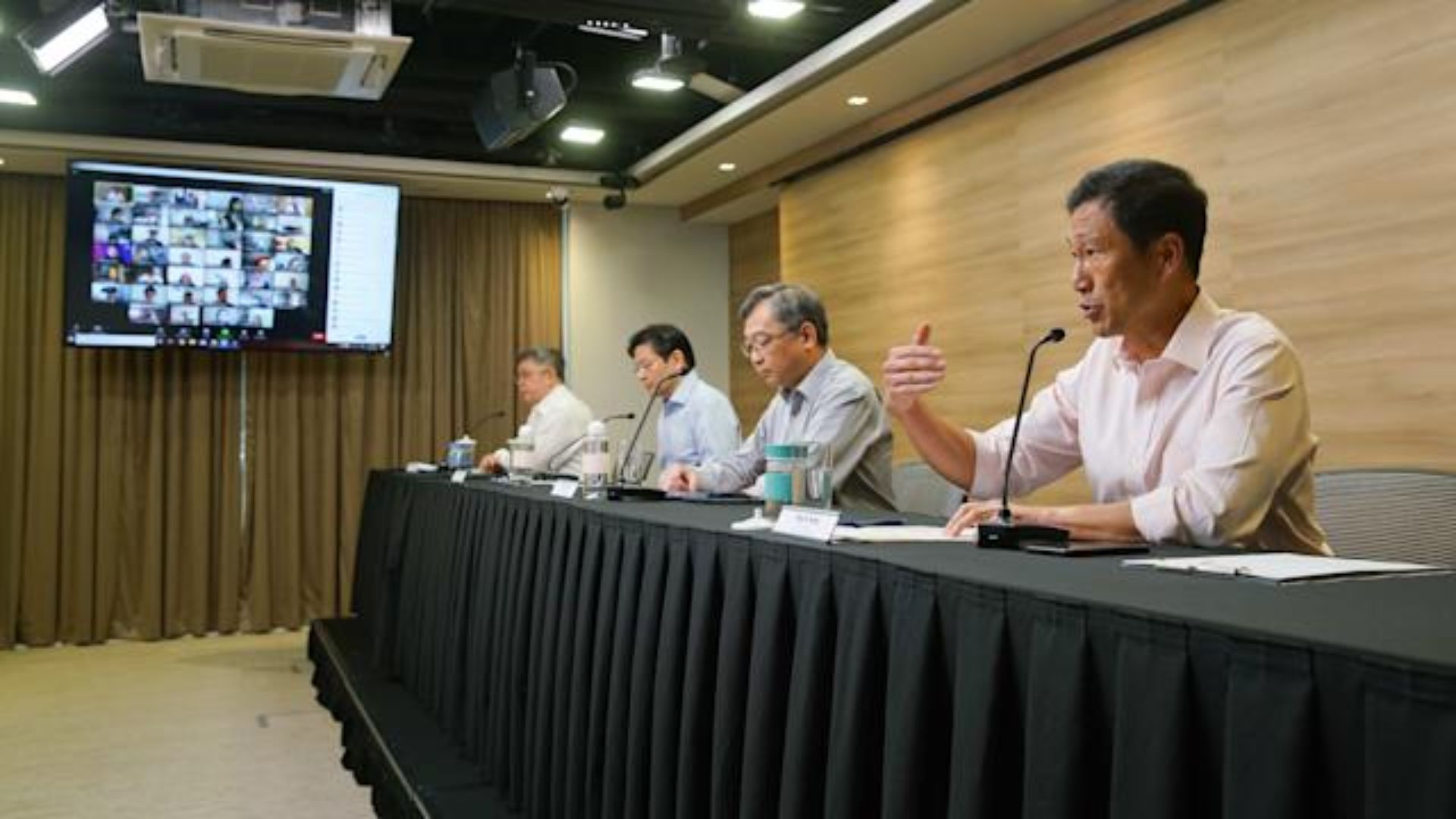
With respect to the Government’s taking the lead in the national handling of the Covid-19 pandemic, Dr Koh acknowledges that the Government and professors in the public health sector have known the best ways to manage the crisis and lead the nation out of the pandemic.
‘’I cannot see how there was any other way to respond than to have the government take the lead… As for the implementation of GST, there has been feedback on it over the years and the most important issue is how GST on its own is regressive,” she says.
“But with the feedback, the government has changed this — there is now a permanent GST voucher for those in lower-income households. These measures ameliorate the uneven effects across different social classes,” she adds.
Change is in the air
But Dr Tan says the patriarchal style is “unlikely to sit well with Singaporeans today”.
“Decades on, Singaporeans expect a more consultative and collaborative style of government. In that sense, the style of governance will have to evolve with the times. A stronger sense of nationhood and belonging has led to the expectation that Singaporeans be engaged by the government, particularly on big issues of the day,” he says.
“Trust and confidence in the government remains relatively high today but Singaporeans are now shifting their focus to post-material concerns such as social justice and national identity.”
Dr Koh also acknowledges that a different governmental style is in the cards now.
“Whether the PAP or individual leaders like it or not, not only is there a rise in civil society but also a growing expectation to be consulted among the public as it has become better-educated and globally exposed, has meant that the PAP governing style and politics in Singapore had to change a great deal,” she says.
‘’From public consultation under Goh, to public engagement and open engagement under Lee Hsien Loong, Alliances for Action when Heng Swee Keat was far more involved in directing governance, you see a deeper and more involved role for citizens and the public,’’ she adds.
Dr Koh says the clearest alternative model is found in the “Alliances for Action” modality of shared governance, co-creation between government and people.
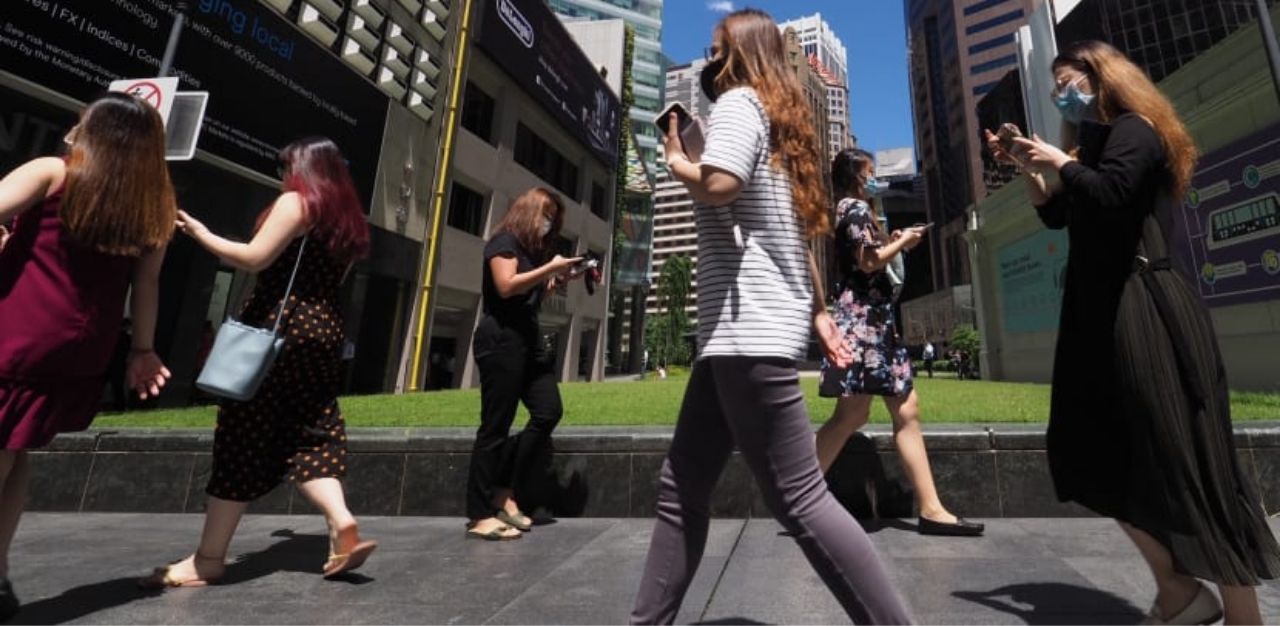
Dr Tan says, “Consultative style of governance has ostensibly been the government’s approach since 1990 when Mr Goh Chok Tong succeeded Lee Kuan Yew as prime minister. But the nature of a consultative style of governance has evolved since 1990.”
“Today the government speaks of co-creating policies with the people. There are more major consultations such as national conversations, constitutional commission, and Parliament’s Select Committee. We also see the PAP having a more diverse slate of MPs, which indicates the recognition that such diversity within its ranks of legislators will enable more representation and more representativeness in law-making,” he says.
Speaking at the Building Our Future Singapore Together dialogue on 15 June 2019, Deputy Prime Minister Heng Swee Keat said: ‘’As President Halimah Yacob said at the opening of Parliament last year, the right to leadership cannot be inherited. Each generation of leaders has to earn the right to lead by itself, for itself. I know – and my colleagues know — that we have to earn your trust. I mean to do so by working with you, for you, for Singapore…. Our approach to leadership must continue to stress constructive politics and unity…’’
Then on 28 June this year, DPM Lawrence Wong said in the same thread at the launch of the Forward Singapore Exercise, “Forward Singapore will be a major undertaking of the 4G team. It is an exercise that we are both excited and honoured to lead. You have my word that we are sincere and committed to listening to and partnering with Singaporeans. We will build on the momentum we have gained and apply the lessons we have learnt over the years. We will engage in good faith; consider all ideas; and work alongside Singaporeans to achieve our shared aspirations.”
But has the former Workers’ Party (WP) chief Low Thia Khiang thrown a spanner in the works when he said in Parliament in 2014 that although Singapore has made progress in strengthening its political system and the Government has been more responsive to the people, “constructive politics does not happen by the order of the Government. Nor does it happen through a national conversation or public consultation”?
According to Opposition politician and former PAP MP Dr Tan Cheng Bock, “…over the years, we have to change, because society changed through better education, better exposure, better media coverage”.
“All of you are so exposed all over the world, all you travel so much. We want to have a much, balanced society, where everybody can talk, laugh over jokes that may be not happy, teasing the Government, and so on. We must be able to laugh at ourselves. But everyone is so prim and proper, cannot say this, cannot. The jokes cannot crack such jokes because it might hurt the Government. I do hope that the younger generation of leaders, they have gone overseas to study, they are like all of you been exposed to the, I do hope that they’ll be more not so strict. Don’t, this climate of fear must slowly subside,” he summed.
RELATED: Ground-up activism: Civil society and advocacy that make a difference in Singapore
Join the conversations on TheHomeGround Asia’s Facebook and Instagram, and get the latest updates via Telegram.
